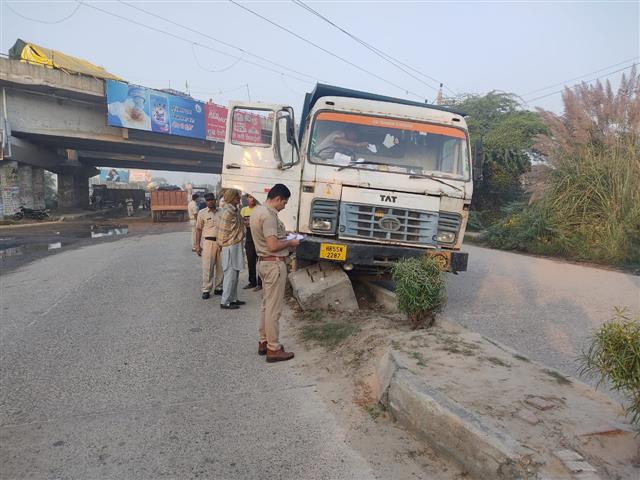Improving Road Safety Could Save 30K Lives In India Annually: Study
Jul 1, 2022 | Pratirodh Bureau
A majority (70 percent) of those killed on highways in India comprise vulnerable road users (pedestrians, cyclists and motorised two-wheeler riders). This is similar to urban areas where the vulnerable road users comprise about 80 percent of the total fatalities (Representational Image)
Improving road safety measures could save nearly 30,000 lives in India every year, says a study published in The Lancet journal that underlines proven interventions targeting four key risk factors – speeding, drunk driving, lack of helmet, and seatbelt use.
The researchers found that interventions to check speeding could save 20,554 lives while promotion of crash helmets could save 5,683 lives in India. Encouraging the use of seatbelts can also save 3,204 lives in the country.
The estimate for drunk driving was not available for India.
This is the first study that gives country-specific estimates of the effect of addressing the four main road safety risk factors through interventions for 185 countries.
Globally, road traffic crashes kill more than 13.5 lakh people each year, with over 90 per cent of those fatalities occurring in low- and middle-income countries (LMICs), the researchers said.
The Lancet Series on road safety calls for increased political and financial commitments and for road safety to be included in mainstream development policies.
The series argues that it is essential to achieving the UN Sustainable Development Goals (SDGs), including the target to halve road traffic crash fatalities and injuries by 2030.
“Most road traffic deaths are preventable, but sadly the number of fatalities continues to rise in low-income countries while progress in high-income countries has slowed over the past decade,” said series coordinator Professor Adnan Hyder from The George Washington University, US.
“With the second United Nations Decade of Action for Road Safety (2021-2030) underway, our work for this series clearly shows that proven road safety measures can save lives in all countries, rich and poor alike,” Hyder said.
Globally, the analysis of 74 studies in 185 countries suggests that routinely wearing helmets and seat-belts, obeying speed limits and avoiding drunk-driving could save between 347,000 (3.47 lakh) and 540,000 (5.4 lakh) lives worldwide every year.
The study estimates that targeting four key risk factors for road injuries and deaths — speeding, drunk driving, and non-use of crash helmets and seatbelts — could prevent between 25 per cent and 40 per cent of all fatal road injuries worldwide every year.
All countries would benefit from increased road safety measures to varying degrees, the researchers said.
For example, improving seatbelt use would have a particularly large effect on reducing road deaths in the US, saving an estimated 14,121 lives every year, and China (13,228).
The benefits of increasing motorcycle helmet wearing would be largest in China, saving 13,703 lives a year, and in Brazil (5,802), and India (5,683), that have a high incidence of motorcyclist injuries, according to the researchers.
“We hope that these new estimates provide tangible impetus for the global road safety community to focus on implementing evidence-based interventions, especially in low- and middle-income countries,” said series co-author Andres Vecino-Ortiz from Johns Hopkins Bloomberg School of Public Health, US.
“These estimates can be used by policymakers to perform their own priority setting analyses to reduce road fatalities,” Vecino-Ortiz said.
The researchers also found that improving post-crash care could save two lakh lives a year globally, adding there is a strong case for strengthening trauma care in LMICs, equivalent to a 17 per cent reduction in deaths.
The more realistic scenario of 50 per cent coverage could save over one lakh lives a year, equivalent to 8 per cent fewer fatalities, according to the researchers.
“While prevention remains the cornerstone of reducing road traffic deaths, knowing which trauma interventions are likely to have the greatest impact on saving lives will help make the best use of limited health resources,” study co-author Junaid Razzak from Weill Cornell Medical Centre, US, added.
